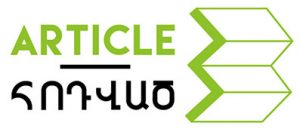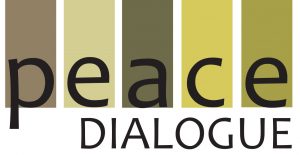
© 2019 Photo by Article 3 Club
A discussion entitled Investigation of criminal cases initiated in non-combat deaths in the army: is comprehensive, thorough and impartial investigation of cases guaranteed? took place on 12 September 2019 in Article 3 Club. The event was the result of cooperative efforts between Peace Dialogue NGO and Article 3 Club.
Բանակի ոչ մարտական զոհերը. գործերն օբյեկտի՞վ են քննվում
Posted by «Հոդված 3» ակումբ – #Article3 Club on Thursday, September 12, 2019
Video: © 2019. Article 3 Club: Discussion “Investigation of criminal cases initiated in non-combat deaths in the army: is comprehensive, thorough and impartial investigation of cases guaranteed?”
The high rate of regular deaths in the military during non-combat situations has been a topic of concern for the general public in Armenia in recent years. The fact that the causes of these deaths, and the perpetrators thereof, remain unresolved is even more worrisome.
“We had 349 deaths reported in the Armed Forces during 2014-2019,” said Perch Ayvazyan, Chief Inspector of the Republic of Armenia’s (RA’s) Investigative Committee’s General Military Investigative Department, who took part in the discussion. “These figures are certainly high for our small nation”, he added, noting that the numbers refer only to service-related victims.
Some of the criminal cases launched based on deaths recorded over the past 10 years have been dropped or suspended during the judicial process. Meanwhile, some are still in the preliminary stages of investigation. Victims’ successors cannot find out the real causes of their relatives’ death, and it has become common practice that those responsible for these criminal acts go unidentified and are not punished.
“The papers relating to our children’s cases are rotting in safes; nothing has been resolved. Our high hopes have all been in vain,” says Nana Muradyan, mother of Valeri Muradyan, who died while in the army.
According to representatives of human rights NGOs in Armenia, advocates and lawyers for victims’ successors, not only does the failure to determine the causes of death and the perpetrators prevent the reduction of the overall number of murders and suicides in the armed forces, but it also deepens public distrust of investigative bodies and their activities.
“After the Velvet Revolution, we had high hopes that murder cases in the army would be investigated and clarified, and that trust in the investigative bodies would be regained. Unfortunately, we have so far not seen any changes,” said Edgar Khachatryan, President of Peace Dialogue NGO.
According to lawyer Mushegh Shushanyan, another speaker at the discussion event, it is not so easy to change a government system that has been in place for many years. Unwritten rules have guided the army since Soviet times: this is the main reason for current problems.
Meeting participants also touched upon work carried out by the Public Monitoring Working Group set up in 2018 at the initiative of the RA Investigative Committee. The Group was established to review and investigate criminal cases related to non-combat deaths during military service. It was also meant to identify systemic shortcomings and issues encountered during the investigation of cases and report them to the investigative body and the public.
According to Zhanna Alexanyan, head of one of the member organizations in this group: Journalists for Human Rights NGO, the Investigative Committee does not provide conditions for efficient work by the group. Meanwhile, the deceased soldier’s parents (who also participated in the discussion) expressed their dissatisfaction with the fact that the same investigators who concealed the details of cases relating to their children’s deaths are now members of the Working Group and have no interest in disclosure of information on the cases. The deceased soldier’s relatives are also concerned that, in response to presenting their questions and demands to various state bodies, officials usually just insist that a public monitoring group is working on resolving various cases. However, the results of the group’s work are still not evident.
Perch Ayvazyan, Chief Inspector of the RA Investigative Committee’s General Military Investigative Department, disagreed with the deceased servicemen’s relatives’ claims. He says that all necessary conditions are in place for the Group’s work. He also said that both he and the Investigative Committee are ready to hear all citizens’ complaints and recommendations and, within their jurisdiction, to seek solutions to issues that arise during the investigation of cases.
The discussion was organized by Article 3 Club in cooperation with Peace Dialogue NGO





